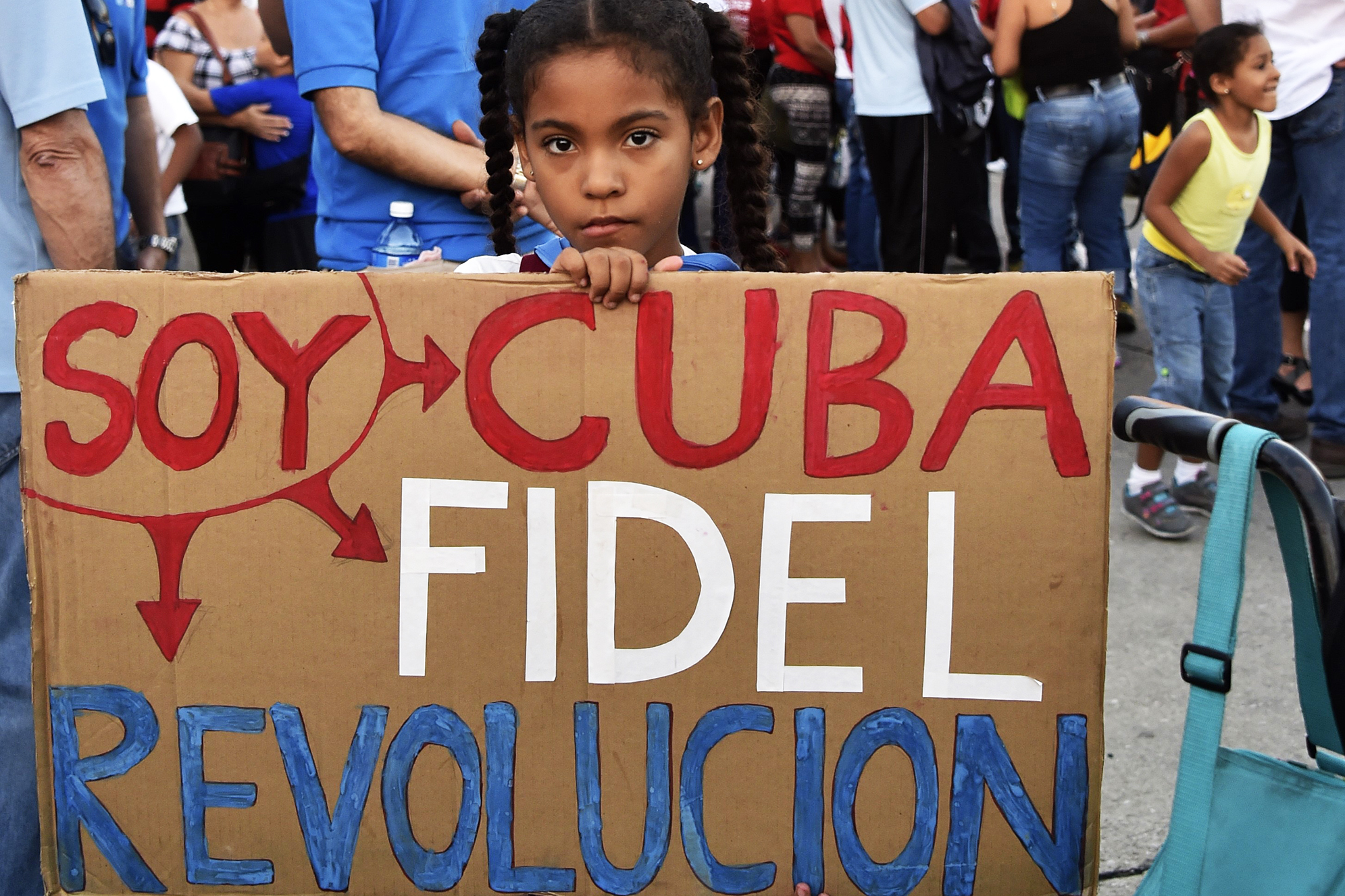
Julia Cooke is the author of The Other Side of Paradise: Life in the New Cuba
They used to be the first band of attendees to greet a television camera on May Day, young Cubans standing in front of the million people at the plaza, smiling and screaming in the dawn light, waving multi-colored arms like bunting over the crowd barriers, wearing red t-shirts distributed the night before. The place of pride, closest to the cameras and to Fidel Castro, was reserved for the young. They proved something essential, as Fidel aged through the early 2000s: that the revolution was not the exclusive province of the old and gray. Never mind that few of them wanted to be there more than once, if at all, and even then they came for the pride and thrill of the march to the plaza. Never mind that attendance at a certain number of these all-night affairs was compulsory. For the cameras, they served their purpose.
To the young Havanans, Fidel was, similarly, an abstraction.
For the young, Fidel was a grandparent’s comment that things had been different before, that the seventies and eighties had been better, not like now, with mass enthusiasm exhausted. Fidel was the twentysomething’s cavity filled at the dentist’s—free—and a taste for rice and beans because it was quite literally all he’d eaten as a kid in the years after the U.S.S.R.’s fall. Fidel was the power invoked when the matriarch from whom I rented an under-the-table room tapped her shoulder silently, indicating the military stature of the man who’d rung the doorbell during our daily lunch, that he was impossible to turn away but perilous to have in the house. Fidel was also the eye roll and the pffffffft sound her 22-year-old son made as he followed me into my room to wait quietly until the man departed. Fidel was the trio of cars that sped around the bend of the malecón and the sense that, were you to get in its way while crossing the street, the caravan might well run you over and keep going.
In their short lifetimes, the dignity he’d once represented for standing up to corrupt powers had given way to more prosaic concerns, as the revolution’s schools struggled to attract teachers, ration cards became objects of fiction rather than fact and friends, and family scattered across the globe. To the majority of young Cubans, Fidel was a historical but not human figure, a grandfather of fable rather than flesh. He, and the system he put in place, was to be respected and then disobeyed and then, if luck prevailed, left behind.
If Fidel was an abstraction to the young in life, he remains so in death. His death is a quiet mood suffusing the city, a photo posted on Facebook of an American newscaster and her crew on an otherwise empty street, an absence of stimulus that contrasts with the complicated grief of the elderly. Without the infrastructural economic changes for which they have been waiting—the legalization of more jobs, of private practice for professionals, of a wholesale market for restaurants and bed and breakfasts, to name only a very few—Fidel’s death means not a great deal to the young. It has been 10 years since his last May Day appearance.
More Must-Reads From TIME
- The 100 Most Influential People of 2024
- The Revolution of Yulia Navalnaya
- 6 Compliments That Land Every Time
- What's the Deal With the Bitcoin Halving?
- If You're Dating Right Now , You're Brave: Column
- The AI That Could Heal a Divided Internet
- Fallout Is a Brilliant Model for the Future of Video Game Adaptations
- Want Weekly Recs on What to Watch, Read, and More? Sign Up for Worth Your Time
Contact us at letters@time.com